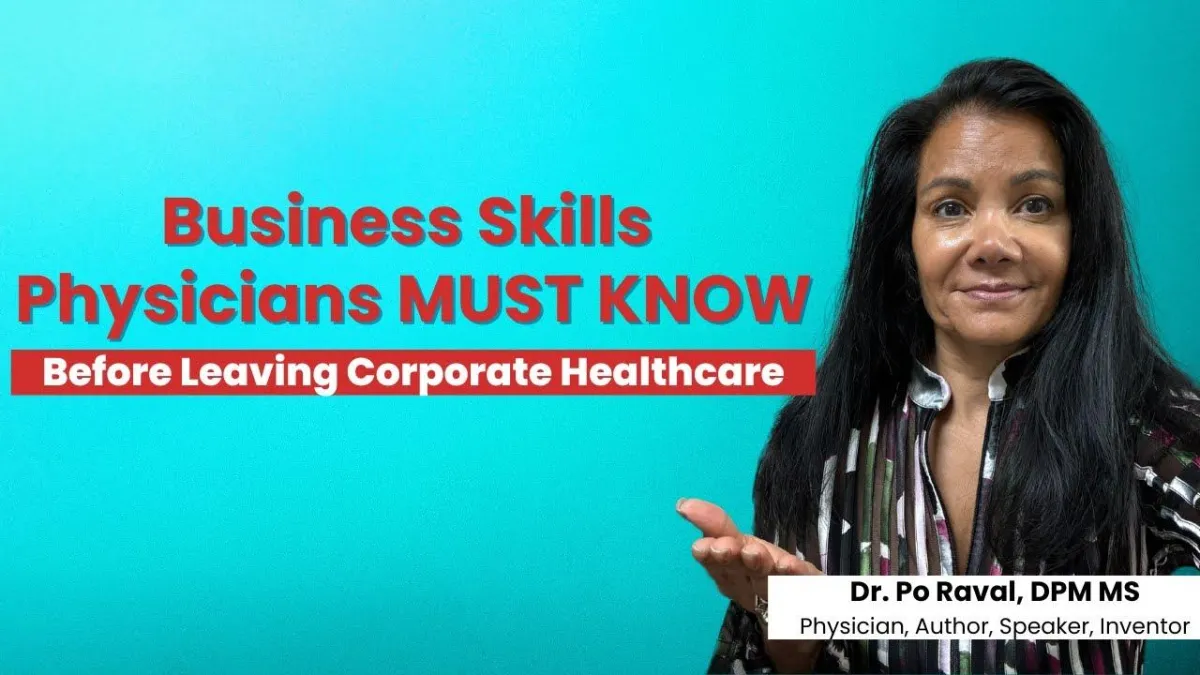
Business Skills Physicians MUST KNOW Before Leaving Corporate Healthcare
Business Skills Physicians MUST KNOW Before Leaving Corporate Healthcare
In the current healthcare landscape, business skills for physicians have become essential for regaining autonomy and effectively managing practices. As hospital-based physicians increasingly express dissatisfaction with corporate healthcare environments, many are considering a return to independent practice. However, a significant gap in business knowledge poses a challenge to this transition. Physicians are facing decreased patient access, a lack of decision-making freedom, and a focus on profitability over patient care, all of which contribute to their growing frustration.
The shift towards corporate structures in healthcare has made it clear that medical professionals need to equip themselves with business skills to navigate these complexities. Physicians often find themselves in a no-win situation when hospitals threaten to open competing practices, forcing them into contracts that prioritize financial goals over quality care. This dynamic highlights the urgent need for physicians to understand the business side of medicine.
The Necessity of Business Skills
Despite their extensive training in medical school and residency, many physicians lack the necessary business acumen to successfully run their practices. This deficiency can hinder their ability to make informed decisions about patient care and practice management. Business skills are not just advantageous; they are crucial for physicians looking to establish and sustain their practices independently.
One of the first steps in this journey is to learn how to write a business plan. A well-structured business plan provides a framework for evaluating financial performance, setting goals, and defining strategies for growth. Without this essential skill, physicians may struggle to assess their practice's viability and long-term sustainability.
Moreover, basic accounting knowledge is vital. Understanding the financial health of a practice enables physicians to make informed decisions about expenses, investments, and profitability. In fact, a survey from Jackson Physician Group found that 67% of physicians desire business education to enhance their leadership capabilities. This reflects a collective recognition that strong business skills can lead to improved practice outcomes and patient care.
Learning the Language of Business
Another critical component of acquiring business skills is developing a language that facilitates communication with management and stakeholders. Physicians are trained to engage with patients and collaborate with peers, but they often lack the terminology and understanding necessary to navigate the corporate environment. Learning this language can empower physicians to advocate for themselves and their practices effectively.
Dr. Gomez, a medical director in Florida, emphasizes the importance of understanding how to deliver on promises made in a business context. This lesson is invaluable for physicians who wish to transition away from corporate medicine and embrace their independence. It provides them with the tools to not only achieve their goals but also to foster a patient-centric approach within their practices.
As the healthcare industry continues to evolve, business skills for physicians will play a pivotal role in reclaiming autonomy and improving practice management. By developing these skills, physicians can navigate the challenges posed by corporate healthcare structures and enhance the quality of care they provide to their patients. For those interested in diving deeper into this journey, resources like specialized business courses and books tailored to medical professionals can offer valuable insights and guidance.
If you're a physician considering the transition to independent practice, remember that acquiring business skills is not just an option—it's a necessity for success in today's healthcare landscape. Embrace the opportunity to take control of your destiny and foster a fulfilling, patient-centered practice.